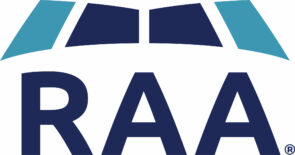As the title suggests, the job of a trustee requires a person to perform certain duties in a way that is honest, ethical, and trustworthy.
While a designated trustee has many responsibilities, the most important thing to remember, should you step into this role, is that the assets you are safeguarding are not yours. Rather, they belong to the grantor (if still living) and his or her beneficiaries upon the grantor’s death.
Here are seven rules and responsibilities that every trustee should know and understand before taking on this very important role:
1. FOLLOW INSTRUCTIONS
Trusts are established with a signed trust agreement. This legally binding document sets forth very specific instructions for the way(s) in which property or assets are to be handled. It is of utmost importance that the trustee follows these instructions to the letter and ask for clarification if a potential conflict arises. Trustees who do not follow the trust agreement can be removed or sued by beneficiaries or other concerned parties.
2. KEEP AND RENDER ACCOUNTS
Just as with your own income and expenses, it’s important as a trustee to keep accurate and complete records. These records will be used to file the annual fiduciary income tax return, and you can be found personally liable if they are not properly maintained. You will also use these records and returns to provide reporting to the beneficiaries as outlined in the trust agreement.
3. KEEP TRUST PROPERTY SEPARATE
As noted above, the role of trustee means you are safeguarding assets that do not belong to you and are for the benefit of others. As such, it goes without saying that you cannot commingle (mix) trust assets with your own personal assets. To do so would make it difficult to maintain accurate records and could constitute a breach of fiduciary duty.
4. NO DELEGATION
As a trustee, you are not allowed to delegate the administration of the trust or any other duties specific to your role unless explicitly stated otherwise in the trust agreement. If situations arise that require specialized knowledge or expertise that you may not have, it would be smart to seek the advice of professionals such as your financial advisor, accountant, and/or attorney to assist you in carrying out your responsibilities to the trust.
5. EQUAL TREATMENT
As a trustee, you must treat all trust beneficiaries the same. Unless the trust agreement specifically allows you to do so, you cannot favor one beneficiary over the other.
6. FIDUCIARY RESPONSIBILITY
The laws and regulations that define trusts are centered around the concept of fiduciary responsibility. Simply put, the trustee must always put the needs and objectives of the beneficiaries of the trust over their own. For example, trust assets cannot be used for your personal benefit unless the trust agreement specifically authorizes it. Further, should a conflict of interest arise between yourself as trustee and the trust’s beneficiaries, it must always be resolved in favor of the beneficiaries. This is the core principle of any trust.
7. PRUDENT INVESTMENT
Trust assets must be invested in a prudent manner, providing a reasonable amount of growth without taking on undue risk. Your main responsibility as a trustee is to conserve the original trust assets, invest them to yield an appropriate amount of income, and ensure you are able to carry out the objectives identified in the trust agreement.
While it is a great honor and sign of commitment, there are times when the responsibilities of acting as a trustee can feel overwhelming. The same professionals who help you navigate your personal finances are invaluable resources for advice and direction as you manage the assets of others that have been placed under your care and supervision.
Your financial advisor can help you make the appropriate investment and accounting decisions, and an attorney can help ensure that you make choices according to the terms of the trust agreement. At the end of the day, you are responsible to the beneficiaries of the assets with which you have been entrusted.
If you have questions about trust assets or would like more information on the duties of a trustee, request a call with a certified financial advisor.



0 Comments